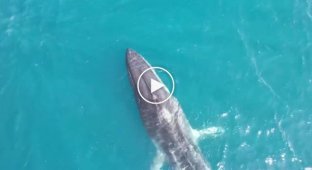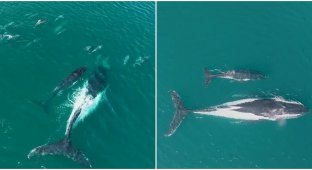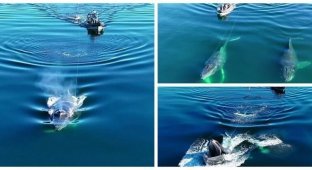A whale with a broken spine was filmed near Mexico (3 photos)
A humpback whale off the coast of Baja California Sur may have collided with a ship. According to experts, the injury will lead to the death of the mammal. 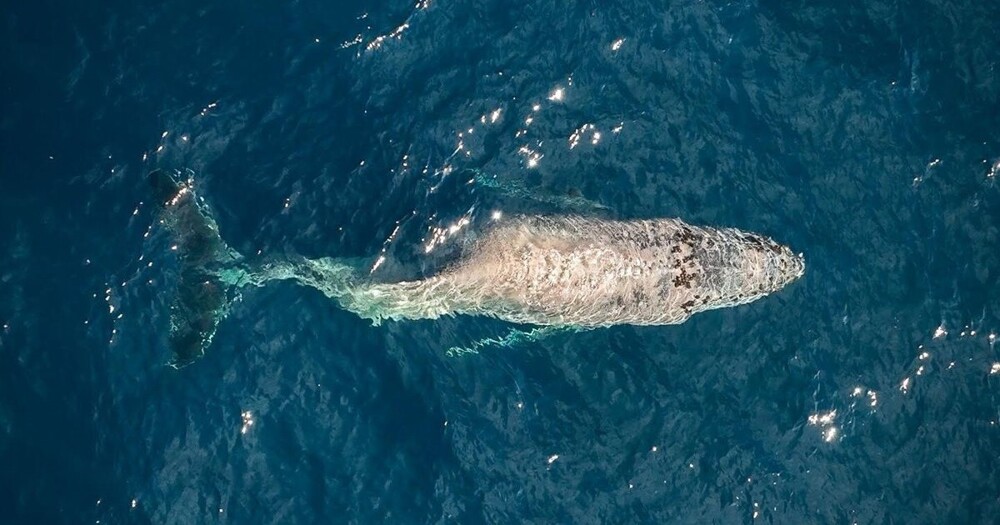
A whale with a broken spine was found off the coast of the Mexican state of Baja California Sur. The drone image shows severe deformation in the tail section. And this injury will most likely be fatal.
In December 2023, the animal was first seen off the coast of Cabo San Lucas by underwater photographer and videographer Alexander Schmidt. He shared images of the whale with the Pacific Whale Foundation, a non-governmental organization based in Hawaii. 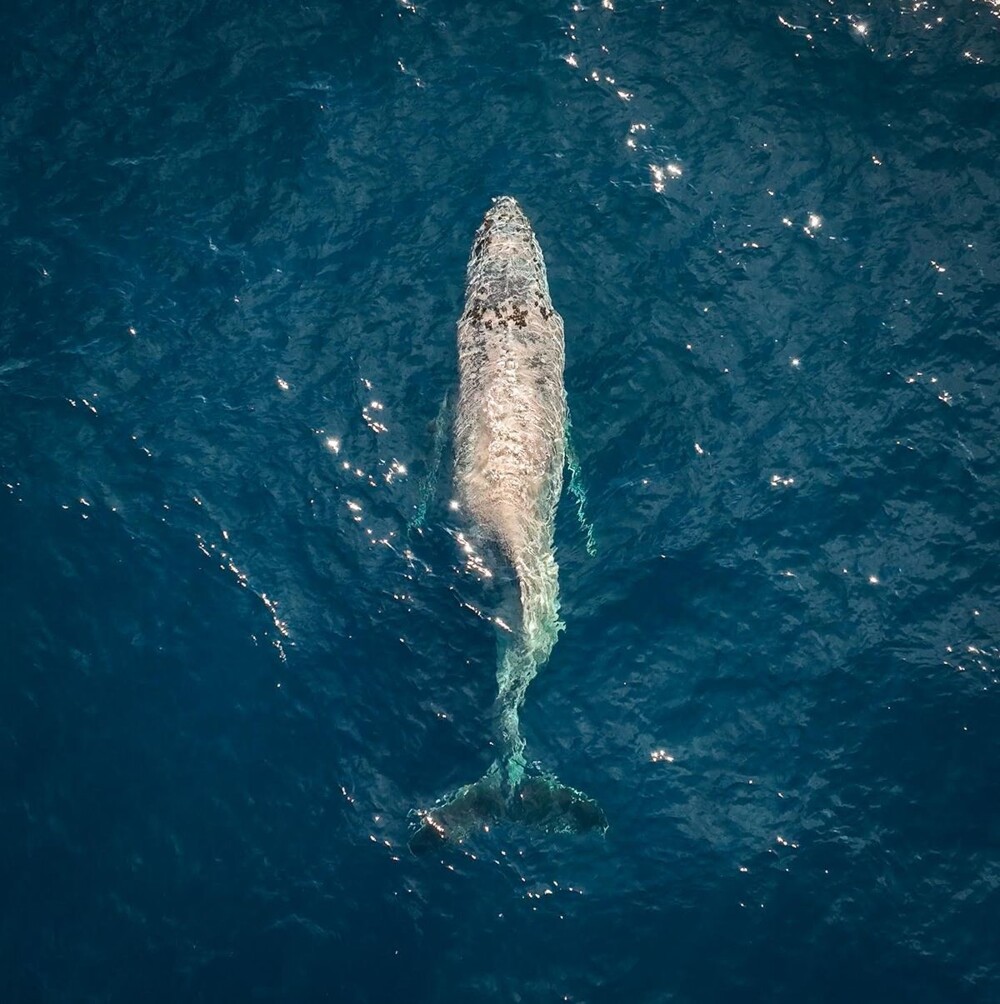
At first, scientists decided that this was a female Moon, who swam 4,800 km from Canada to Hawaii with a broken back. But a more thorough analysis conducted by the foundation's chief biologist, Stephanie Stack, determined that these were different individuals.
"As with Moon, I suspect this is a fatal injury. Whales are very resilient creatures, but such severe injuries can significantly reduce their chances of survival in the wild," Stack said.
A broken back will affect the whale's ability to migrate, feed, rise to the surface for air, and evade predators.
“Humpback whales live on extremely limited energy reserves, and an injury that affects their ability to move normally can be catastrophic,” she added. “In addition to physical problems, a broken back is likely to cause significant stress and pain.”
Collision with a ship is one of the main causes of death of whales. It is estimated that thousands of individuals are killed each year. 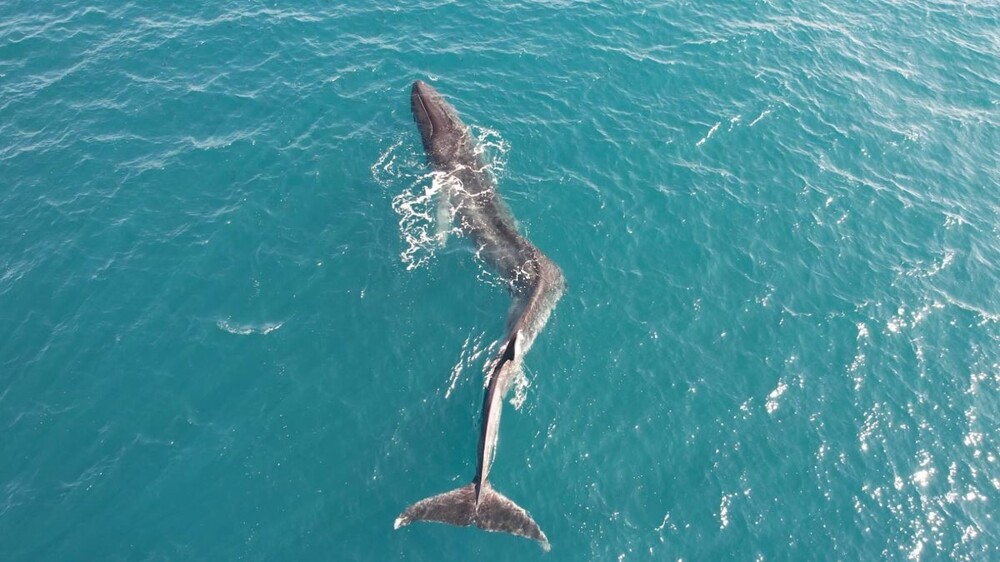
In March 2023, a 17-meter-long fin whale was spotted off the coast of Spain, struggling to swim due to a broken back. Experts said the injury was likely caused by a collision with a vessel and that the animal was doomed to die from exhaustion.
The loss of whales off the West Coast of the United States is a serious problem because these waters are home to several endangered species. The National Oceanic and Atmospheric Administration (NOAA) has set a speed limit: During certain times of the year, vessels over 65 feet (20 m) in length are prohibited from traveling more than 10 knots (11.5 mph or 18.5 km/h).
However, studies show that this reduction in speed will only reduce whale deaths by 25-30%.












